The HeraldSun ran an interesting article on August 29th 2014, titled, “Qantas v Virgin: The war that cost $8.75m a day”. The article looked at the way both businesses operated and the effect it’s had on their profits
Check it out at http://www.heraldsun.com.au/travel/travel-news/qantas-v-virgin-australia-the-war-that-cost-875m-a-day/story-fnjjv9zn-1227041659016
Although Qantas certainly appears to have turned itself around in recent times, there’s a lot that I believe many small businesses can learn from this experience which I’d like to share.
A bitter capacity war waged between the CEOs of Qantas Airways and Virgin Australia has contributed more to the shocking financial results posted by the two groups this week than anything else.
I will never argue that it’s important to understand and know what your competitor is doing in the market, however at what cost? Anyone in small business who has not undertaken a SWOT (or similar) analysis of their business is missing out on some really key information, however when decisions are made purely to trump your primary competitor, you’ve missed the mark! By a long shot it would appear in this case….
Business decisions should never be based purely on the premise of trumping your competitor or to “keep up with the Joneses”.
By simply ignoring the most basic economic principle of supply and demand, the two airlines and their budget subsidiaries Jetstar and Tigerair, sank a further $8.75 million into debt every day they flew last year.
Cash is king! Every business knows this is Business 101. Leaders must be willing to stand up and admit that something isn’t working or something isn’t right and fix it before it gets out of control. A manager who can admit they’ve made a mistake (especially one with a magnitude such as this) and can put in place changes to rectify the situation is a true leader in my eyes. Supply and demand must dictate how you manage your business.
Greater fuel costs, the carbon tax and aggressive international competitors all took their toll but the biggest issue was a vast oversupply of seats.
Qantas was the worst offender with its confounding strategy of two services for every one of Virgin Australia’s in an effort to maintain its 65 per cent domestic market share.
Hhhmmmm, empty seats, rising fuel costs, carbon taxes- what can we control?
Carbon Tax- no control over that one.
Increased fuel costs- nope, can’t control that one either.
Aggressive international competitors- nothing much we can control there. That’s the nature of competitive business.
Oversupply of seats? Hell yes! That is one we can control. Anyone who manufactures and operates a warehouse environment will tell you that stock sitting on the shelf is costing you money. I’d rather have 5 full flights running across the country than 10 half full flights. I may not have the business credentials of
Joyce and others, but the maths just doesn’t add up for me….
Again, not surprisingly, supply and demand come to mind.
Even when it became apparent the plan was backfiring with month after month of falling demand, the airline persisted, finally calling a halt to capacity increases in April.
April? Nearing the end of the financial year and suddenly the maths doesn’t add up? Businesses need to be constantly looking at this stuff, especially small business which relies so much on cash flow. Decisions to change must be done quickly (don’t confuse that with recklessly) when it comes to cash flow, supply and demand, staffing and other elements that impact on your bottom line.
However this week Mr Joyce refused to acknowledge the role of the capacity war in Qantas’s financial woes instead blaming budget uncertainty and fierce competition. “There is nothing anybody in Qantas has done that has caused this issue,” he said.
Really? Aren’t you the CEO? Doesn’t the buck stop with you and your management team? As stated earlier, leadership means admitting you’ve made a poor decision and then putting in place actions to rectify it before the horse bolts.
Conclusion
Small businesses should never find themselves in a situation such as this where they’re drowning in debt or unable to meet demands- we have a massive advantage over large business in that we can be agile and can quickly react to changes that affect our business. Leaders need to constantly evaluate their business- this means every aspect from recruitment, training, maintenance, supply and other facets. We need to especially pay attention to cash flow- remember cash is king!
Luke Dam
Safety Wise



Great article – so much interesting info. Thanks for sharing.